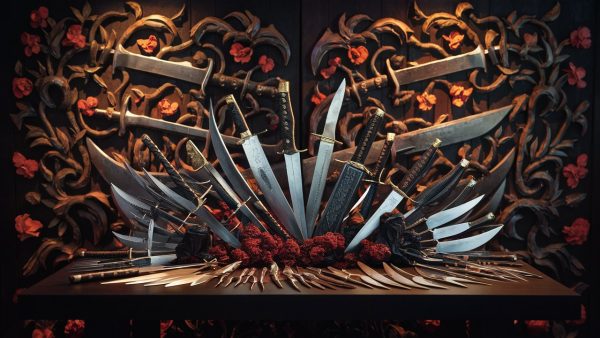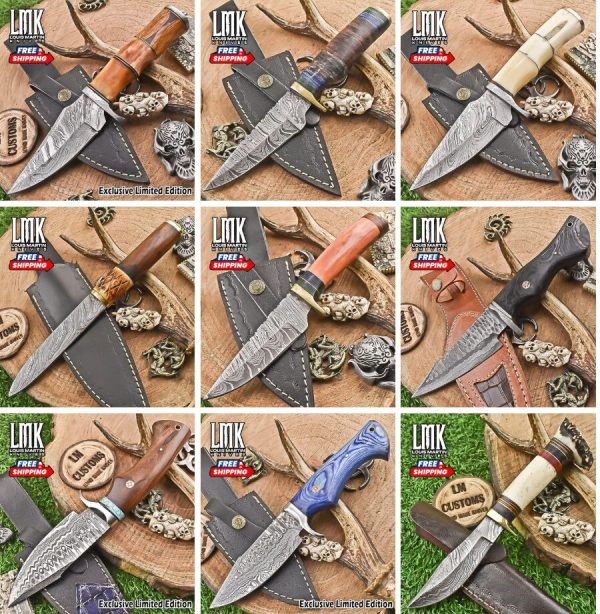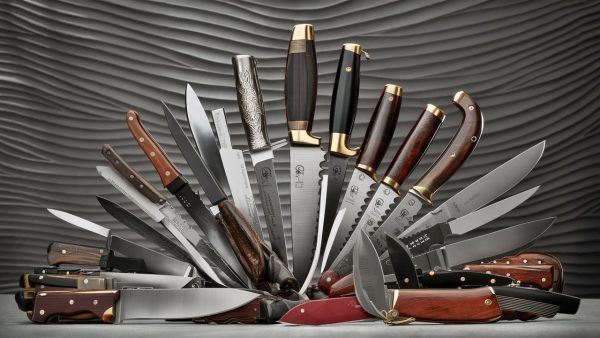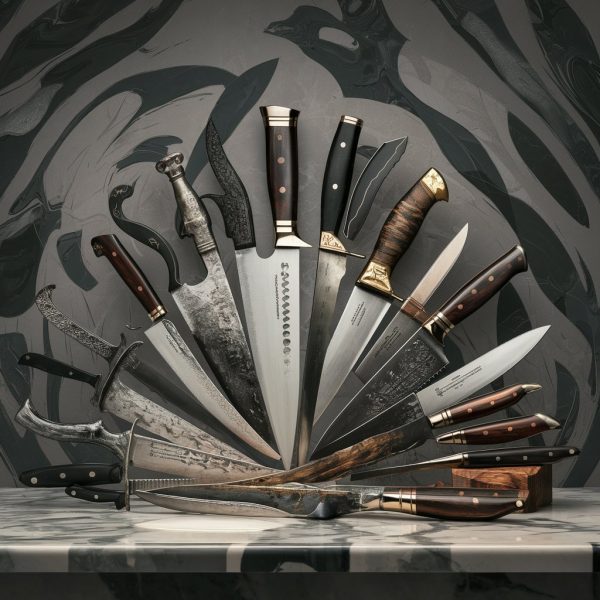In the world of hunting, having a reliable knife is as crucial as having a dependable rifle. For outdoor enthusiasts, survivalists, and professional hunters, the hunting knife is more than just a tool; it is a trusted companion. With the growing demand for high-quality hunting knives, the market for custom wholesale knives has seen a significant surge. This trend is driven by the desire for personalized, durable, and efficient knives that can withstand the rigors of the wild.
Quality plays a paramount role in the satisfaction of customers and the reputation of brands. A high-quality hunting knife ensures safety, efficiency, and longevity, which are critical for users who rely on these tools in challenging environments. For retailers and distributors, maintaining a high standard of quality in custom wholesale best hunting knives is essential to build trust and ensure repeat business.
Understanding Wholesale Hunting Knives
A. Definition and Significance
Best wholesale hunting knives are knives designed to meet specific needs and preferences, produced in large quantities to be sold at wholesale prices. The ‘custom’ aspect refers to the ability to tailor the knife’s features, such as the blade material, handle design, and overall aesthetics, to meet particular requirements. The ‘wholesale’ component involves purchasing these knives in bulk, typically for resale, which provides cost advantages and ensures a consistent supply.
B. Key Features of High-Quality Hunting Knives
To understand what makes a hunting knife high-quality, we must consider several key features:
- Material Quality:
- Blade: High-quality blades are usually made from stainless steel, carbon steel, or Damascus steel. These materials are chosen for their durability, sharpness, and resistance to rust and corrosion.
- Handle: The handle material is equally important. Common materials include wood, synthetic composites, and bone, each offering different benefits in terms of grip, durability, and aesthetic appeal.
- Craftsmanship and Design:
- The craftsmanship of a hunting knife is evident in its design and finish. A well-crafted knife will have a balanced weight, a comfortable grip, and a seamless integration between the blade and the handle.
- Durability and Performance:
- A high-quality hunting knife must perform reliably under various conditions. This means it should maintain its sharpness, withstand heavy use, and be easy to maintain.
Ensuring Quality in Bulk Orders

Choosing Reliable Suppliers
The first step in ensuring quality in custom wholesale hunting knife sets is selecting reliable suppliers. Here are some criteria to consider:
- Reputation:
- Look for suppliers with a solid reputation in the industry. This can be assessed through reviews, testimonials, and industry awards.
- Certifications:
- Suppliers should have relevant certifications that attest to their manufacturing standards and quality control processes.
- Experience:
- Experienced suppliers are more likely to understand the intricacies of producing high-quality hunting knives for sale and can offer valuable insights and recommendations.
B. Setting Quality Standards
Once you have chosen a supplier, it is crucial to set clear quality standards. This involves:
- Specifications for Materials and Craftsmanship:
- Define the specific materials to be used for the blade and handle.
- Outline the expected level of craftsmanship, including design details and finishing touches.
- Quality Control Measures:
Implement robust quality control measures that the supplier must adhere to. This can include regular inspections and performance testing.

Quality Control Processes
A. Initial Assessment
Before placing a bulk order, it is essential to evaluate sample products. This initial assessment helps ensure that the supplier can meet your quality standards.
- Sample Evaluation:
- Request samples of the custom wholesale hunting knives.
- Assess these samples for material quality, craftsmanship, and performance.
B. Ongoing Quality Checks
Maintaining quality in bulk orders requires continuous oversight:
- Regular Inspections:
- Conduct regular inspections during production to ensure compliance with your quality standards.
- Batch Testing and Final Assessments:
- Perform batch testing on the finished products to identify any defects or inconsistencies.
- Conduct a final quality assessment before shipment to ensure the entire order meets your expectations.
Customization Options and Their Impact on Quality

A. Blade Customizations
The blade is the heart of a hunting knife, and customization options can significantly impact its quality:
- Material Choices:
- Stainless Steel: Known for its corrosion resistance and ease of maintenance.
- Carbon Steel: Valued for its sharpness and edge retention, though it requires more maintenance to prevent rust.
- Damascus Steel: Renowned for its unique patterns and superior strength.
- Blade Designs and Finishes:
- Consider different blade shapes (e.g., drop point, clip point) and finishes (e.g., satin, matte) that enhance the knife’s functionality and aesthetic appeal.
B. Handle Customizations
The handle affects both the functionality and appearance of the hunting knife:
- Material Choices:
- Wood: Offers a classic look and comfortable grip but may require more maintenance.
- Synthetic Composites: Durable and often ergonomically designed for a secure grip.
- Bone: Provides a unique appearance and historical appeal but can be more delicate.
- Ergonomic Designs and Aesthetics:
- Focus on ergonomic designs that ensure a comfortable and secure grip during use.
- Aesthetics should align with the intended use and target market of the knife.
C. Personalized Engravings and Branding
Adding personalized engravings and branding can enhance the appeal of custom wholesale hunting knives:
- Methods and Quality Implications:
- Ensure that engraving methods do not compromise the knife’s structural integrity.
- Branding should be tastefully done to enhance the knife’s overall appearance without overshadowing its functionality.
Partnering with Manufacturers for Quality Assurance
A. Communication and Collaboration
Effective communication and collaboration with manufacturers are crucial for ensuring quality:
- Importance of Clear Communication:
- Clearly articulate your quality expectations and customization requirements.
- Establish regular communication channels to address any issues promptly.
- Collaborating on Design and Production Processes:
- Work closely with manufacturers to refine designs and optimize production processes for quality and efficiency.
B. Long-Term Relationships
Building long-term relationships with manufacturers can yield significant benefits:
- Trust and Reliability:
- Long-term partnerships foster trust and reliability, ensuring consistent quality in bulk orders.
- Consistency and Improvement:
- Over time, manufacturers gain a better understanding of your quality standards and can continually improve their processes to meet your needs.

- Over time, manufacturers gain a better understanding of your quality standards and can continually improve their processes to meet your needs.
Conclusion
Ensuring quality in custom wholesale hunting knives is a multifaceted process that requires careful planning, thorough vetting of suppliers, and rigorous quality control measures. By understanding the key features of high-quality hunting knives, setting clear quality standards, and fostering strong relationships with manufacturers, businesses can deliver exceptional products that meet the high expectations of their customers


